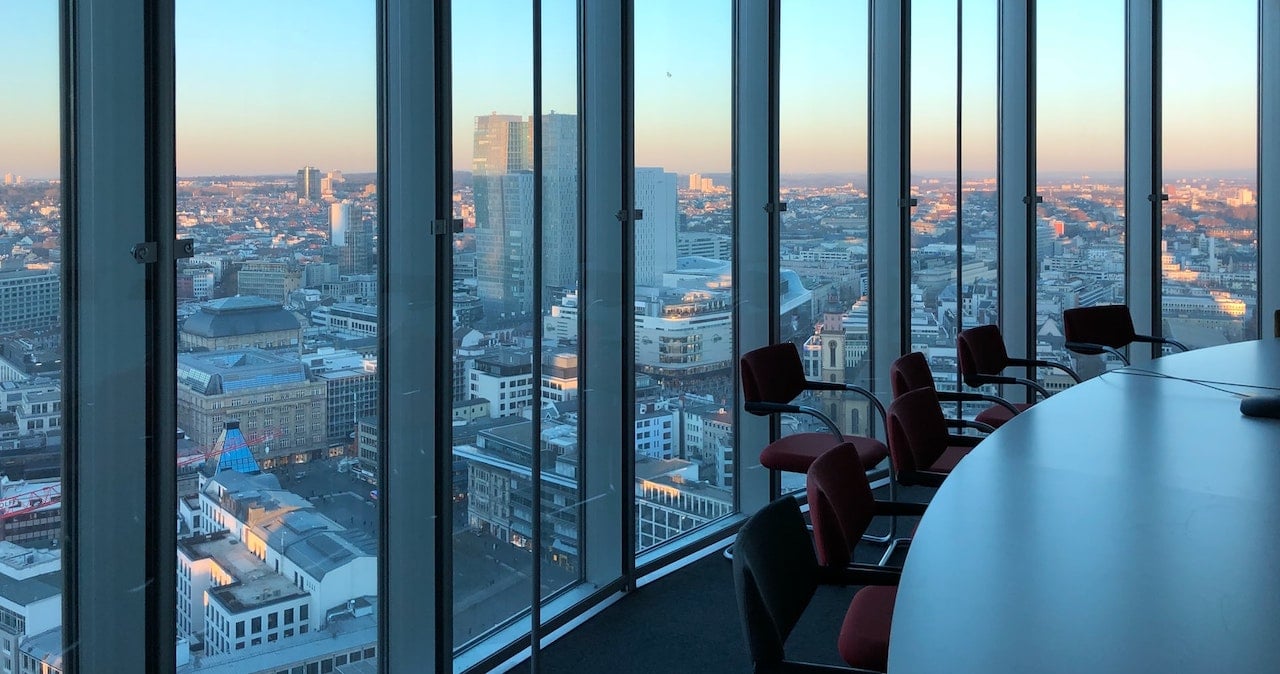Last week was the RICS Global Conference 2021, a week-long virtual event that covered a range of topics in the corporate real estate (CRE) and facilities management (FM) sectors. RICS, the Royal Institute of Chartered Surveyors, has a primary goal of effecting positive change in the built and natural environments.
The conference consisted of a series of panels that featured leading experts from around the world. I’ve picked out some of the key topics and insights for this short event recap.
Hybrid work and the future of the office
The future of the office featured in numerous discussions, but we’re still at the speculation stage rather than being able to make concrete assertions. Though some people have started to return to the office, most businesses are still taking their time to enact hybrid policies and as such we don’t have many trends to be able to analyse yet.
When companies do welcome their employees back to the workplace, leaders should look at behaviours rather than surveys when they make decisions. Employees may state a preference for the number of days they spend in the workplace, but this may not align with their actions once the workplace is open again.
Coworking continues to be a good option because it’s convenient, improves productivity and is better for the environment. Some companies that are looking at hub and spoke models. However, the demand from workers has to be there for the spokes to be a financially viable option. Coworking is a great choice here as many providers are increasingly flexible in their offerings, allowing companies to book for particular days each week or month.
Technology
PropTech has experienced significant acceleration since the start of the pandemic, but it must be adopted strategically to have its desired impact.
There are so many options that it can be overwhelming and lead to a scattergun approach. Users must identify and understand gaps, set clear ROIs and ensure that any technology can integrate with existing platforms.
Technology can support employees whether they are in the workplace or working remotely. Fundamental uses include security and connectivity, return to work tech such as desk booking, occupancy sensors and sanitisation checks for cleaning teams, and digital transformation of business operations.
As technology continues to evolve, AI has the potential to make us more productive than ever before.
Real estate and development
The consensus is that it’s still too early to make predictions about the future of CRE. Countries around the world are still imposing and relaxing restrictions at different times, which makes corporate planning a challenge.
Workplaces and retail outlets may create “dwell” spaces – areas and reasons designed for people to stay for longer. In the workplace, this could be a social space with catering and entertainment for people to socialise at lunch or after work.
Mixed-use developments could see a resurgence following the pandemic. We may see smaller living quarters but bigger communal areas in a bid to address the need for social spaces. Mixed-use can also be great for building communities and cutting down on travel by providing all core services to residents within a single development.
Whatever strategy a company takes, the user experience must be at the forefront of planning.
Putting people first
The importance of putting people first underpinned almost every conversation. Office workers are exercising their right to a choice for the first time. A great example of this is the letter Apple employees sent in response to the company saying they would be back in the office from September. Apple has since pushed this back to October at the earliest.
Some CEOs have been very outspoken in their belief that employees should be in the office full-time; others have been much more open to fully remote work. The likelihood is that employees will vote with their feet. Companies that do not listen to employees and offer flexibility will struggle with talent attraction and retention.
From a health perspective, employees will want to know that their workplace is safe. There has already been legal action in the US as employees accuse companies of operating unsafe buildings.
Healthy buildings will be the new norm, from air quality to ergonomic equipment. This could even extend to companies taking steps to ensure that their employees home working environments are healthy.
Summary
Despite the difficulty in making predictions, there was plenty of great insight shared by the panellists. We hope to see service partners more involved in strategic decisions as the impact of FM and CRE is so vital in the future of the workplace.
We are the experts in workplace and built environment and attend events throughout the year. Check the ‘Sector News’ section of our blog for other event recaps, and contact us today to discuss the key events in your sector that you need to know about.









